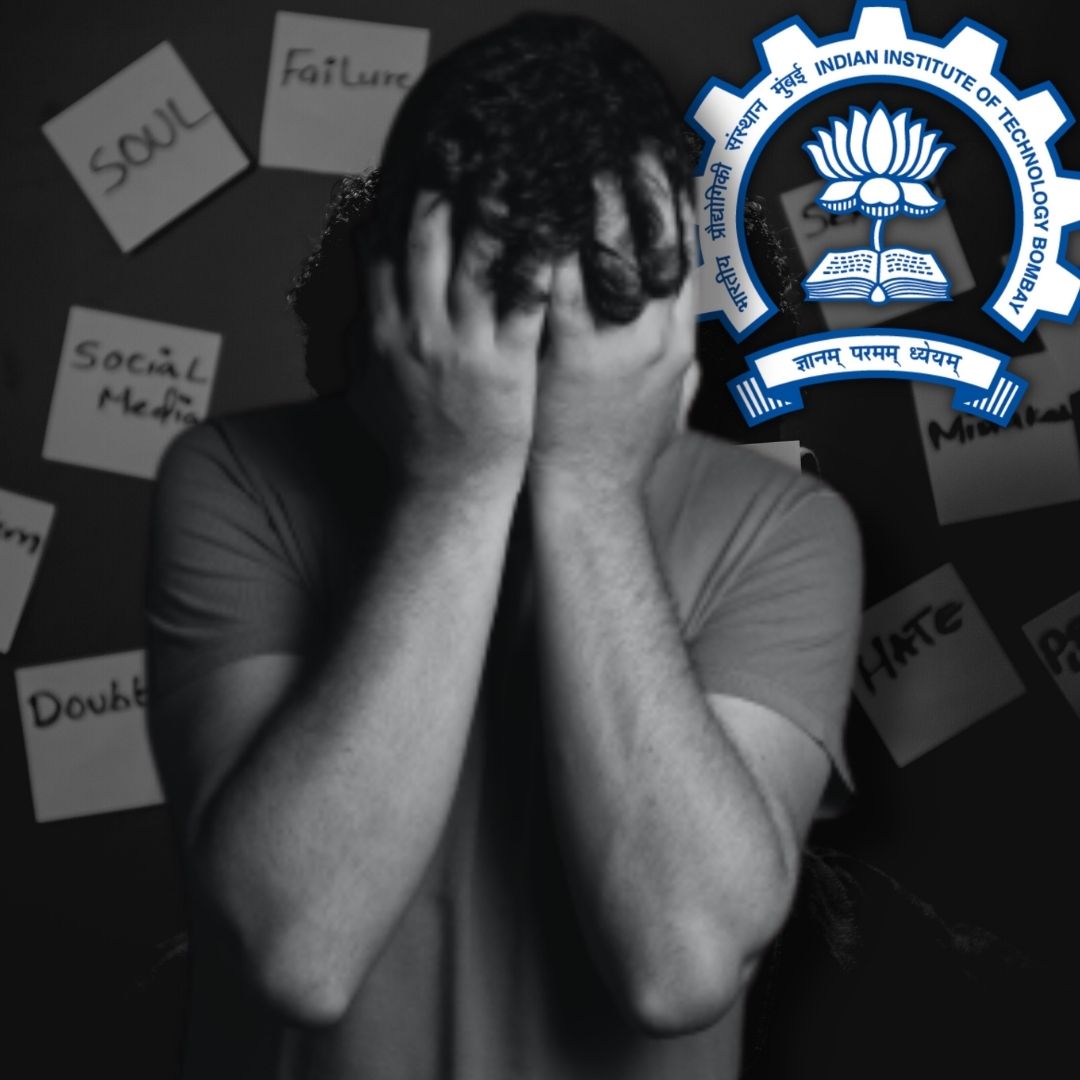Another IIT Bombay Student Dies By Suicide, Leaves Behind Note: What Is Causing Depression Amongst Youngsters?
Writer: Snehadri Sarkar
While he is a massive sports fanatic, his interest also lies in mainstream news and nitpicking trending and less talked about everyday issues.
Maharashtra, 17 Jan 2022 9:20 AM GMT
Editor : Ankita Singh |
A literature lover who likes delving deeper into a wide range of societal issues and expresses her opinions about the same. Keeps looking for best-read recommendations while enjoying her coffee and tea.
Creatives : Snehadri Sarkar
While he is a massive sports fanatic, his interest also lies in mainstream news and nitpicking trending and less talked about everyday issues.
The police recovered a purported suicide note from his hostel room where the 26-year-old student stated that he was suffering from major depression and was undergoing treatment for it as well.
In what can only be described as yet another unfortunate and sad incident, an Indian Institutes of Technology (IIT) Bombay student reportedly died by suicide after he jumped off from the seventh floor of the campus building on Monday (January 17).
As per the police, the deceased was a 26-year-old second-year master's student. According to reports, the above-mentioned individual jumped off from the campus building seventh floor at around 4:30 A.M. on Monday morning.
Right after, he was rushed to Ghatkopar's Rajawadi Hospital where he was then declared brought dead, reported India Today.
Furthermore, the cops also recovered a purported suicide note from his hostel room. In this suicide note, the 26-year-old student stated that he was suffering from major depression and was undergoing treatment for it as well. However, he also clarified in the note that no one is responsible for his death, the police revealed while referring to the above-mentioned note.
Meanwhile, the Powai Police has officially registered a case of accidental death in this matter and an investigation is also underway.
Increasing Number Of Student Suicides Cases
In the past few years, the number of students committing suicide due to depression, pressure or other reasons has significantly gone up. As per official data, premier technical institutions and central universities recorded 58 per cent of student suicides in the past eight years who belong from the Scheduled Tribe (ST), Scheduled Caste (SC), and other minority communities.
As per a careers360 report, data from the Centre which was presented in Lok Sabha in December last year revealed that educational institutions like the National Institutes of Technology (NITs), Indian Institute of Science Education and Research (IISER), Indian Institute of Science, Indian Institutes of Technology (IITs), along with few central universities witnessed a total of 122 suicide cases.
The ministry of education statistics also showed that the IITs witnessed 34 death by suicides of which 18 were from OBC and SC communities. The ITTs have come under repeated heavy criticism over the past years for caste discrimination. Numerous students in engineering had also pointed out cases of institutional discrimination and also explicit threats from teachers in recent times.
Lack Of Awareness About Mental Health
Depression, aka. major depressive disorder, is a fairly common and serious medical problem that massively affects how an individual feels negatively and also determines how an individual may think and act. Furthermore, it also triggers feelings of sadness and a loss of interest in the pursuit which an individual may once use to enjoy. Depression may lead to a variety of physical and emotional problems that can decrease one's ability to function.
In the instances of the above-mentioned cases at the ITTs, the police have pointed out numerous times how many mentioned in their suicide notes that depression is one of the key reasons behind them taking such a step. While the institutions do urge students to seek counselling, however, there is still a massive lack of awareness regarding mental health.
The student population on some campuses are just too high for the sensitive and confidential exercise of one-on-one counselling to be feasible, so it may be time for the institutions to focus on this matter and come up with a better plan for the sake of safety and mental health of the students.
Also Read: India Open 2022: India's Lakshya Sen Defeats Loh Kean Yew To Win Final
 All section
All section















